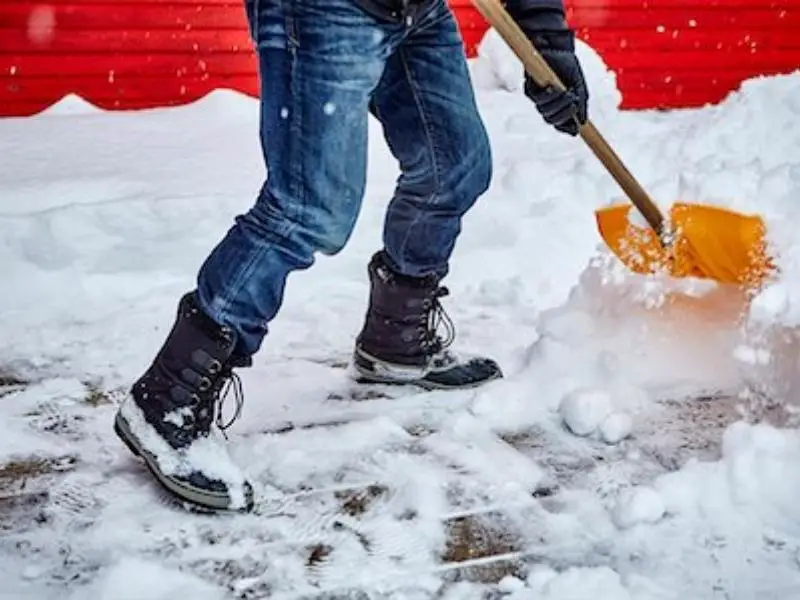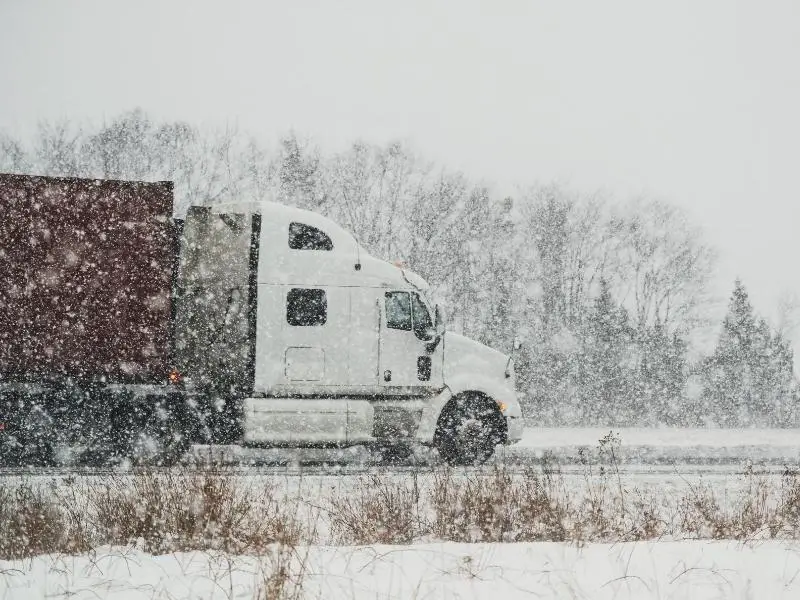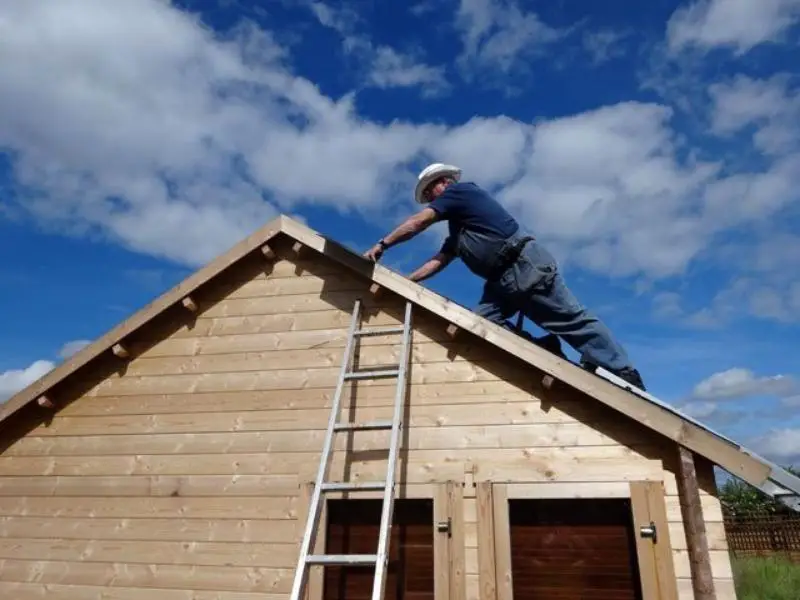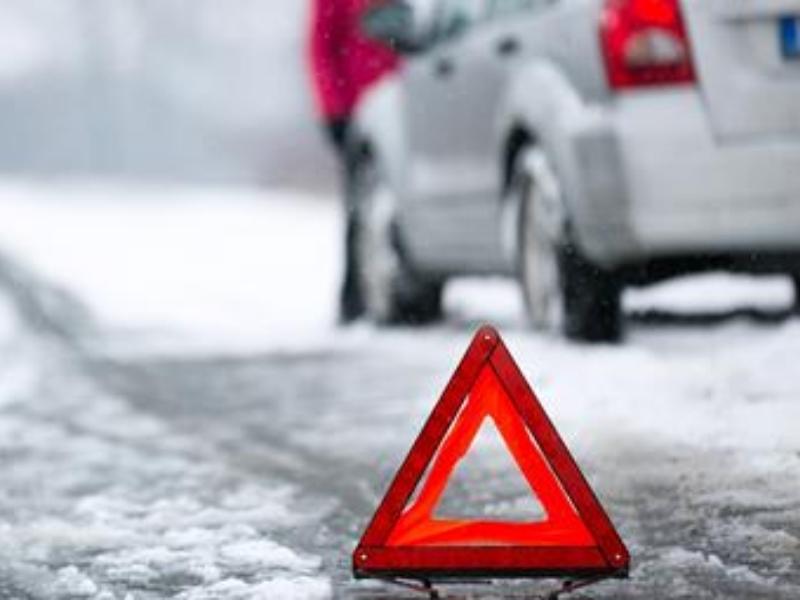Winter is a dangerous time if you are caught in the cold unprepared. Many parts of America experience extreme cold temperatures and blizzards where one wrong move could prove fatal.
Winter emergency preparedness comes in the form of having the relevant winter survival kit items available in all areas where you may encounter extreme cold, like your home and your car.
If temperatures drop very low and winter storms hit, they can knock out electricity, and you could find yourself without heat.
So even if you are waiting for a winter storm out at home, you could find yourself in a dire situation if you have to manage without heat and electricity.
We will look at various winter survival kit options for both your home and your vehicle to ensure you are as prepared as possible when winter hits.
Winter Emergency Home Preparedness

Get your emergency winter home kit supply up to date before winter arrives. Some items to include:
- Products to melt ice on walkways
- Sand for improved traction
- Snow removal equipment like shovels
- Enough heating options, example: dry wood for your fireplace
- Plenty of winter clothing and warm blankets
- Make a family emergency plan and make sure everyone knows what to do should you not all be together
- Have an emergency radio that can be powered by various mean to be able to listen to a NOAA Weather Radio or other emergency broadcasts to keep updated
Things to remember when temperatures drop:
- If you are cold, bring your pets indoors during the cold winter months.
- Other animals or livestock should be relocated to sheltered areas with drinking water
Things To Remember During The Winter Storm

- Do not go outside during the storm. Stay indoors as much as possible.
- Be cautious icy walkways
- When shoveling snow, do not overdo it; overexertion can lead to serious health complications
- If you must be outside, keep dry by changing wet clothes frequently
- Look out for signs of frostbite If you detect any symptoms, seek help immediately
- Beware of hypothermia and look out for signs and symptoms. If you suspect hypothermia, try to keep the person as warm as possible until you can get them emergency medical attention.
- Only drive if you really have to and be cautious when you do so.
- Make someone aware of your planned route and destination should something go wrong.
- If using a kerosene heater, ensure you maintain adequate ventilation.
- Refuel your kerosene heaters outside at a distance of at least three feet from any flammable objects
- Conserve your fuel as much as possible.
Some Ways To Get Your Home Winter Ready

- Insulate walls and attics to retain heat, caulk and weather-strip your doors and windows to prevent drafts, and install storm windows.
- Winterize all structures on your property that may be able to shield your family in a winter storm.
- Repair any roof leaks to avoid having to deal with this in a winter storm.
- Be sure to cut down any trees or branches that could fall on your house during a storm.
- Maintenance of heating equipment will ensure you stay warm.
- Keep your pipes insulated to avoid freezing.
- Fuel-burning equipment needs to vented to the outside and kept clear
- Fire extinguishers must be kept on hand and in working order to ensure everyone knows how to operate them.
- In case of a pipe burst, know how to shut off water valves.
- Ensure your roof is structurally sound and able to withstand a large amount of snow gathering on it.
- Never use any heating or cooking device that generates smoke in an enclosed area. Locate them away from any entry points that could allow carbon monoxide to come back indoors.
- If possible, install carbon monoxide alarms in central locations in your home to give you early detection of a problem.
Winter Emergency Driving Preparedness
When driving in winter, extra care and precautions need to be taken to ensure you are driving as safely as possible. You never know when a winter storm may strike so it is important to be ready for it at all times.
Some of the ways to do this are to ensure your car is well maintained and winter-ready, as well as to have a winter survival kit at all times.
Winter Car Maintenance Tips

Make sure to have your vehicle ready before winter begins. The below steps can help you make sure that your vehicle is safe for driving during winter:
- Make sure your brakes, transmission and tires are all in good working order
- See that your battery as well as your ignition system are in good condition
- Radiator coolant should be at the right level and sturdiness of hoses and belts should be checked
- Have antifreeze on hand and check your thermostat is working to avoid freezing
- Windshield wipers should be working well and deicing washer fluid should be topped up
- All lights should be checked and in working order
- The exhaust system, heater and defroster must be in top condition
- Check fuel and air filters
- Make sure your oil and power steering fluids are at correct levels
- Lubricate door locks to prevent freezing
Winter Driving Safety Advice
- Check weather conditions along your route before leaving and listen for any changes along your trip.
- Your car’s windows, mirrors and lights should be kept clear of snow and ice.
- General road safety should be followed, like buckling up.
- Take time to get to your destination safely.
- Be cautious of sleet and freezing rain
- Look out for potentially icy areas
- Avoid slamming on the brakes
- Maintain a safe following distance from the vehicle in front of you
- On ice and snow, do not drive with cruise control
- Avoid sudden movements, which can cause your vehicle to slide
- Have an emergency winter driving kit in your car at all times
- Keep your gas tank half full at all times during winter.
Winter Driving Safety Kit Items To Include
- Emergency Blanket
- Flashlight with backup batteries
- Battery-powered radio
- Jumper cables
- Emergency flares
- All weather matches
- Extra winter clothing for warmth
- A shovel
- Rope
- Towing chain
- Bottled water or juice
- Nonperishable, high-energy food rations
- First-aid kit
- Swiss army pocket knife
- Road salt for tire traction
- Cell phone
- Portable power bank or car charger
- Ice scraper
- Spare tire or, if possible, a tire repair kit and pump
Final Thoughts
When it comes to winter, if you prepare ahead of time, you will be ready to ride out the roughest of winter storms.
We always try our best to avoid emergency situations, but if you follow our helpful winter emergency preparedness advice, tips and survival kit ideas, you will be able to manage your next winter with a lot more ease.